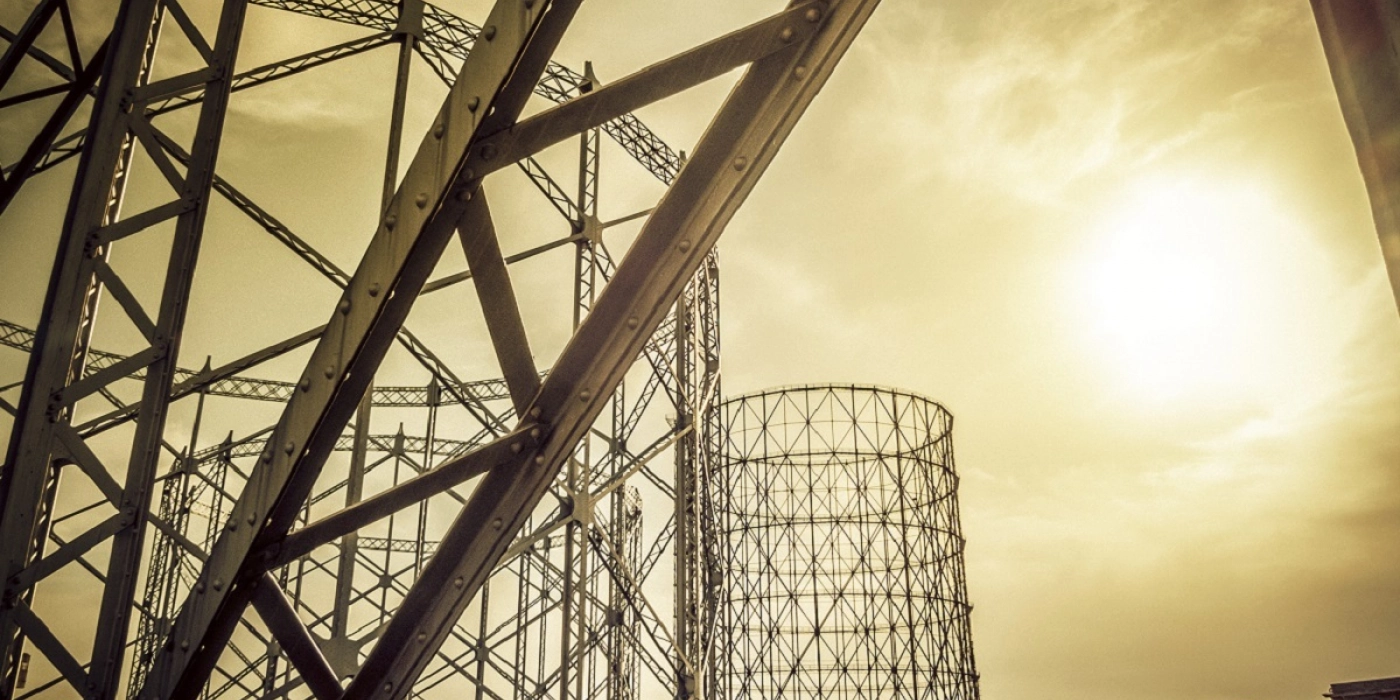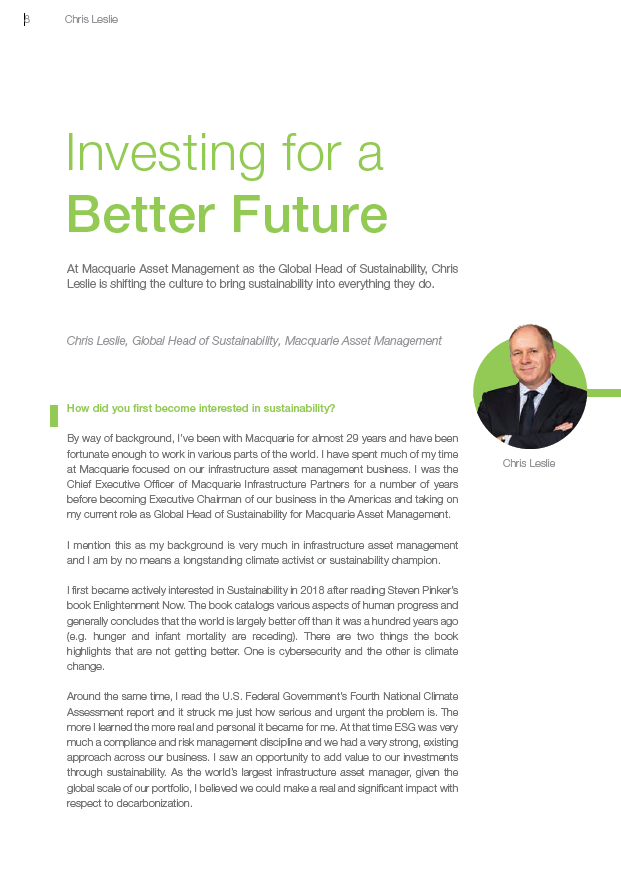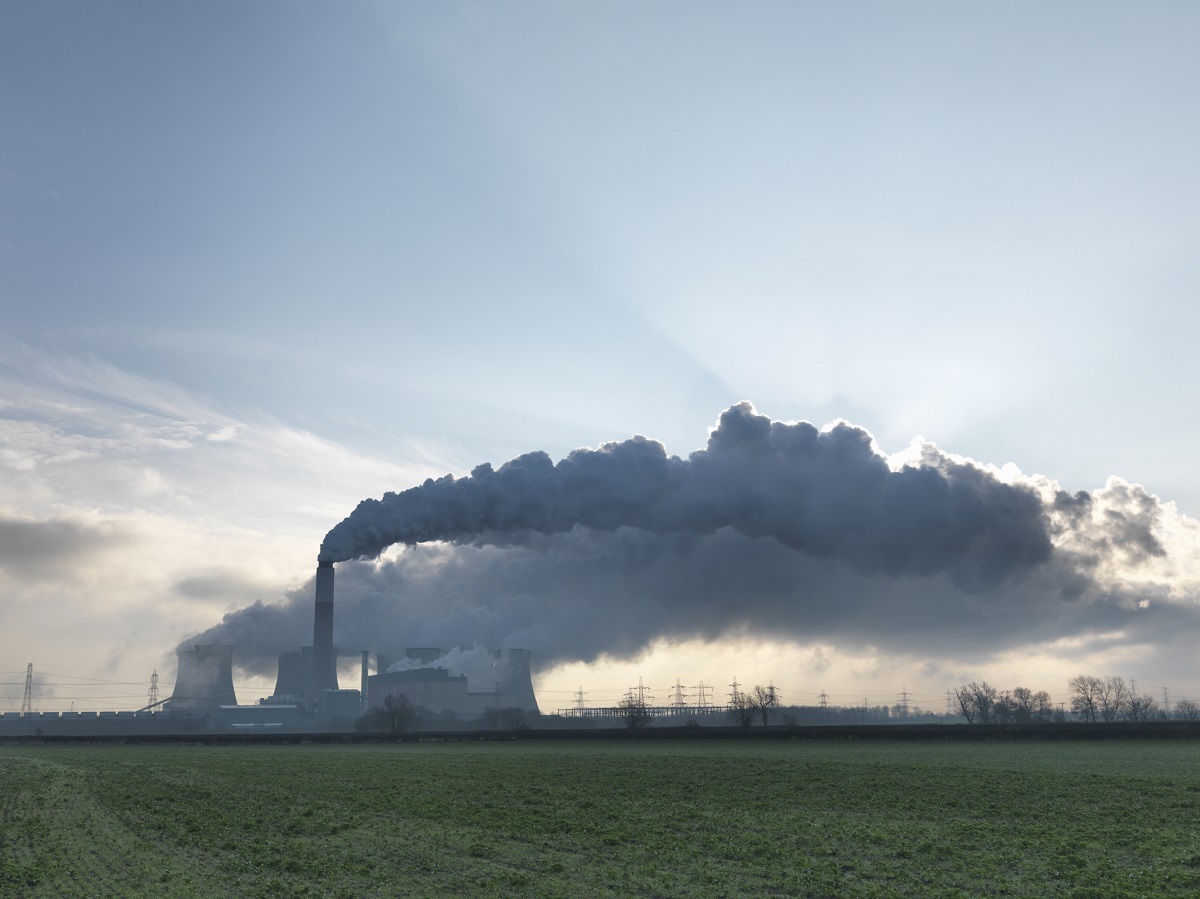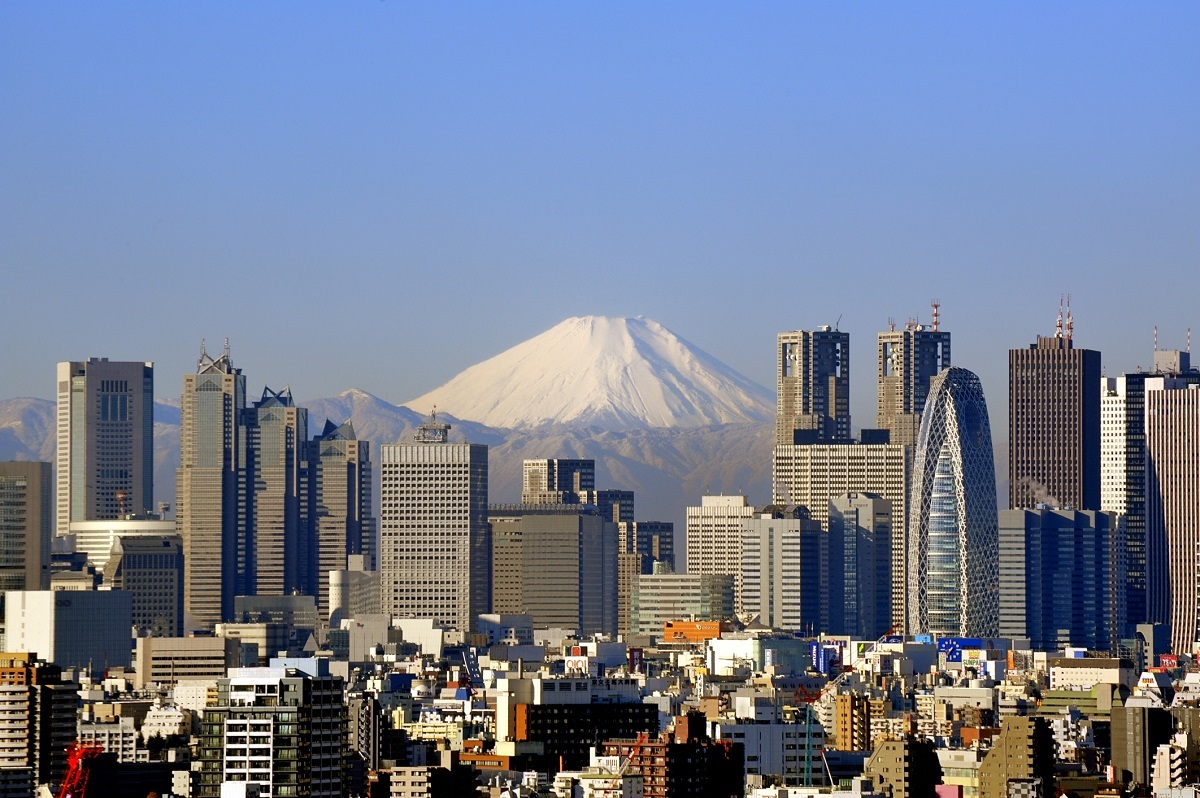What does your role as Global Head of Sustainability for Macquarie Asset Management involve?
I’ve been at Macquarie for almost 29 years, and my background is very much in infrastructure asset management and I am by no means a longstanding climate activist or sustainability champion.
My role is primarily focused on the opportunities presented by acquiring and managing sustainable investments, the corresponding creation of value for our LPs and the cultural and organizational changes necessary to educate our people and to transform the way we do business around the world.
My team also supports the broader organization in all aspects of sustainable asset management, fund raising and new product development. We advocated for MAM’s Net Zero 2040 commitment and are orchestrating all aspects of knowledge transfer and sustainability reporting.
As you might expect, we gave early thought to setting up a dedicated sustainable infrastructure fund, but we decided against that as a first step and instead embarked on transforming our existing business to be more sustainable and to put sustainability at the heart of everything we do. That is authentic change.
“Environmental risks and safety in particular have been a deep area of focus for us for many years.”
What themes or trends in sustainability are you most excited about over the next 5 - 10 years? With a longer‐term perspective, perhaps through the second half of the century, what macro changes and drivers do you anticipate?
I think over the next 5 - 10 years, decarbonization and the energy transition are going to be enormous sources of opportunity and positive change.
New technologies like batteries, hydrogen, and carbon sequestration are exciting and have huge potential.
Another interesting area is ironing out some of the issues resulting from this change. Renewables still have grid reliability issues. The sun isn’t always shining. The wind isn’t always blowing. Batteries potentially fill that gap, but today renewables are approaching a scale that, despite all the good they are doing, they are creating challenges in the economic design of short-run marginal cost power markets that need to be addressed if the energy transition is to succeed. Either via technical solutions to improve capacity and reliability or via market re-design, or both.
With climate risks, it’s important to consider mitigation, resilience and adaptation. Today, resilience is more about recognizing the interdependencies of networks – as we saw recently with the pressures on global supply chains. We are not yet at the stage of widespread building walls to defend against sea level rise, but we might design a new bridge or a new road differently knowing that the climate is changing, and it is going to change over the period of our ownership. That idea is built in designs today but will be more prevalent in future practices.
As the world’s largest infrastructure manager, how does MAM integrate sustainability principles into its portfolio?
We have committed to being the leader in sustainable real asset management. And by that we don’t mean being at the top of a league table. We want to lead by example, drive change across our industry, and share our learnings with others as we go on this journey.
I think the old axiom that you can't manage what you don't measure is very true. We've been measuring greenhouse gas emissions and energy use around the world, and most notably, last December, we set a Net Zero target for 2040. It is a complex journey, but a simple target that everybody can keep clearly in mind and it has proven to be an incredibly powerful way of communicating our strategy and clarifying direction for a diverse range of businesses.
As we have steadily shifted the culture of the organization towards sustainability, it is heartening to see that we are pushing on an open door. People across Macquarie and throughout our portfolio companies are personally passionate about sustainability. By clearly communicating our shift in strategy, we have released incredible human energy throughout out portfolios to take action for transformative change.
“With climate risks, it’s important to consider mitigation, resilience and adaptation.”
MAM has a truly global team and coverage – which regions do you think present the most exciting opportunity for sustainable infrastructure investments?
It is interesting that a lot of developing economies are jumping straight into state-of-the-art technology. We saw that with mobile phones for example as developing economies embraced mobile technology and bypassed wireline. That is something to watch. In China, in particular, if you look at the EV charging station rollout, they can install in a month what the U.S. installs in a year. They have a huge commitment to the electrification of their transit and bus fleet in particular.





